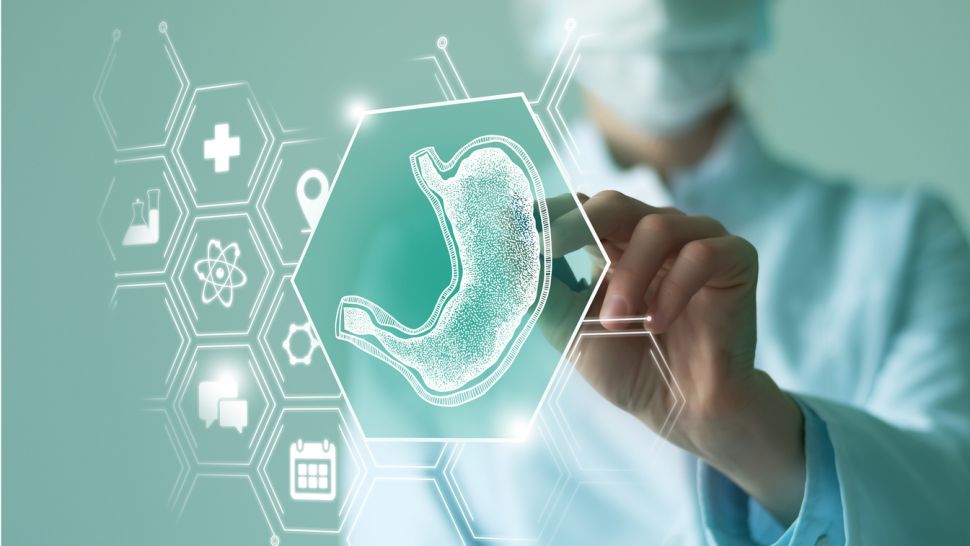Foods and supplements that may help
Gastroesophageal reflux disease (GERD) is a widespread disease that affects millions of people worldwide. This condition, also known as acid reflux disease, causes significant discomfort, pain and other unpleasant symptoms. Although there are various methods of managing GERD, food and supplements play an important role in controlling the condition and reducing symptoms.
We will look at the main aspects of this digestive disorder and the impact that nutrients have on it. We will explore how certain foods and supplements can be helpful in reducing the symptoms of GERD and how they can be added to the daily diet to improve the condition and relieve symptoms.
Gastroesophageal reflux disease: causes, symptoms and what effects it has on health
Gastroesophageal reflux disease is a condition in which stomach acid from the stomach flows back into the esophagus. The problem is that gastric reflux is not usually caused by increased acidity in the stomach. It most often occurs because the sphincter valve that is located between the stomach and the esophagus fails to close completely. When this situation occurs, the contents of the stomach spill up (reflux) into the esophagus, causing irritation and pain. Drugs that block stomach acid work by neutralizing it in the stomach and as a result the irritation and pain stops. Unfortunately, these medications only have an effect on the symptomatology but do not deal with the reflux.
The causes of GERD can be varied, but often factors that determine the onset of this unpleasant condition are inappropriate food, increased pressure in the stomach, impaired esophageal function and others. Symptoms can include a strong burning sensation in the throat, a burning sensation behind the breastbone, heartache, belching and even sometimes a chronic cough.
Diagnosis of this disease is usually done through a physical examination where the doctor evaluates the symptomatology. Various diagnostic methods such as endoscopy, pH monitoring and X-ray tests are used to make a correct diagnosis. Common treatment methods include lifestyle changes (changing eating habits, avoiding certain foods and drinks), and taking medications that reduce acidity in the stomach. In some cases, when symptoms are severe, surgical intervention may be necessary.
Acid reducers and gastroesophageal reflux disease
One of the problems with drugs that block stomach acid is that they also block the digestive process. In the stomach, acid secretion initiates the digestion of proteins and ionizes minerals and other nutrients. Without sufficient gastric acid secretion in the stomach, the pancreas does not get the signal that it needs to secrete digestive enzymes, which impairs precisely digestive function.
Secretion of stomach acid also helps protect the body from invasion by pathogens. Gastric secretions neutralize bacteria, viruses and fungi before they cause gastrointestinal infections. When stomach acid production is blocked, it increases the risk of digestive disorders, including gastrointestinal infections and dysbiosis (disrupted gut microbiome). In conditions such as GERD, the natural approach focuses on aiding digestion rather than blocking the digestive process to reduce symptoms.
The relationship between nutrition and gastroesophageal reflux disease
A common cause of reflux disease is our eating habits. Certain foods and drinks can worsen the condition and trigger or amplify the symptoms of GERD. These include:
- Acidic and spicy foods: Chutney, tomato paste, lamb, spicy foods and other acidic foods often exacerbate GERD symptoms and make the condition worse.
- Citrus fruits: Lemons, oranges, grapefruit and other citrus fruits can irritate the stomach lining and cause heartburn.
- Caffeine and chocolate: Drinks with caffeine, like chocolate, can cause a reaction in people with reflux disease.
- Fatty and heavy foods: Fatty foods rich in fat and heavy fried foods slow down the digestion process and increase heartburn.
- Alcohol and carbonated drinks: Alcohol and carbonated drinks also cause heartburn.
Foods and supplements that can relieve GERD symptoms
When it comes to managing gastroesophageal reflux disease through food or supplements, there are several important factors that are used to relieve symptoms.
- Foods that are rich in probiotics such as kefir, yogurt, yogurt and fermented vegetables support the balance of bacteria in the stomach and improve digestion.
- Aloe vera is associated with soothing the stomach lining and relieving the discomfort of heartburn.
- Peppermint essential oil is also helpful in improving digestion and preventing stomach bloating.
- Curcumin, the yellow pigment of turmeric, has shown significant benefits in promoting good digestion. A study showed that 500 mg of curcumin four times daily gave better results than some popular heartburn blocking drugs.
- Mastic gum is a natural product from the resin of the mastic tree. In one randomized, placebo-controlled trial, 77% of people with dyspepsia who took mastic gum at a dose of 350 mg three times a day for 3 weeks experienced relief of symptoms such as heartburn, indigestion, and stomach pain.
- Probiotics can help with reflux by maintaining bacterial balance, reducing inflammation, improving the barrier function of the stomach and facilitating peristalsis.
Changes in eating habits
The first step in dealing with gastric reflux is to focus on eliminating foods and lifestyle factors that may cause the sphincter to relax or not close completely. Another effective way to manage the uncomfortable symptoms of GERD is by reducing the portions of food we consume. Too much food we take in at one meal can exacerbate the condition of GERD. Smaller and more frequent meals can help manage this unpleasant condition.
Foods that cause the condition, such as those we have listed above, should also be avoided. Other practical tips are:
- chew food thoroughly
- eat in a relaxed atmosphere.
- do not take any food two hours before bedtime.
- sleep on your left side, with your head slightly elevated
It is important to mention that the GERD reaction to certain foods and drinks is different in every person. It is for this reason that an individual approach in determining the right strategy is of utmost importance in improving symptoms and relieving gastroesophageal reflux disease.
Conclusion
Gastroesophageal reflux disease (GERD) requires special attention to our nutritional diet. We looked at the relationship between food and GERD symptoms and provided specific advice on dietary changes and supplementation that can help manage this disease.
It is important to note that successful management of GERD requires an individualized approach. Certain foods, beverages and supplements may be beneficial for some people, while for others they may worsen symptoms. For this reason, it is important to consult a healthcare professional to receive personalized advice that will help you manage this condition in an effective manner.


